May 13 Feature – Qbala Music
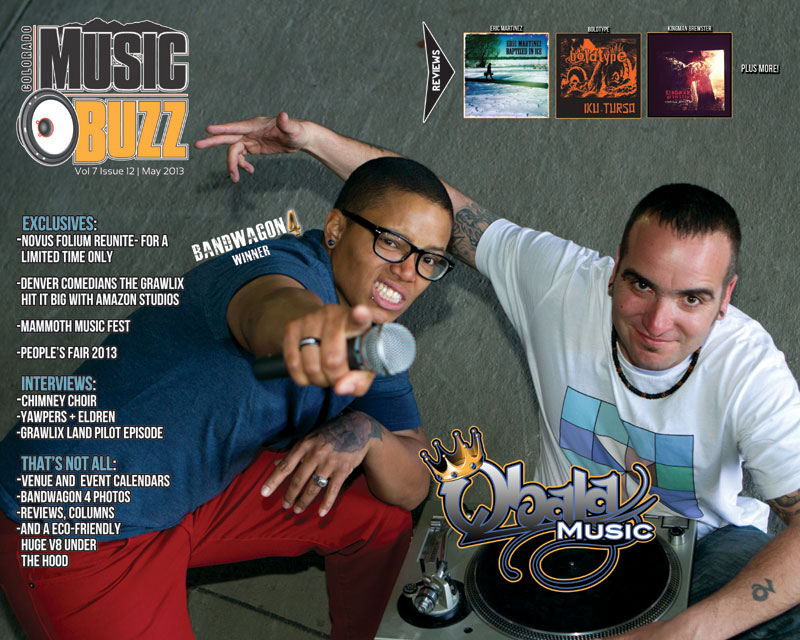
It takes a lot to scratch any kind of surface in the music business. Dedication is only the beginning, and nobody knows that better than Qbala and her main man Dominic “Deadbeat” Welch, the dj behind emotional, potent rapping that took the Bandwagon 4 crown on April 14.
The eclectic duo packed the Lava Room at the Reserve Casino Hotel for each of their three performances in the competition, displaying nothing less that immaculate hard work, and promotional mastery, to take home the prestigious title and $10,000 in cash.
“We met at the Aggie at a show,” says Welch. “I saw her opening up and doing her rehearsal at sound check and I thought she was on tour. Then, all of a sudden, the DJ comes up, and I know the DJ.” Not a bad was to meet. “I secretly plotted in my head to steal her,” he laughs.
Their original meeting took place in 2005. “He had asked me to listen to some beats of his, and I was like, ‘man these are awesome!’ and he played a set with me; it was on from then,” says Qbala. Shortly after, she moved to Utah and then Anchorage, AK, to play basketball at the University of Alaska Anchorage. The team made it to the NCAA Division II Final Four following a 30-5 season. Following the season, she returned home.
“I played in a combine in North Carolina and made a team to go overseas, and I fractured my ankle hooping with a buddy,” Qbala says. “I made the decision that I’m tired of being injured. What do I really want to do? Do I want to continue to play basketball the rest of my life, or do I want to do something that I really love doing, that I’m just as passionate about, but allows me to be myself a little bit more? As soon as I came back and we played our first set, it felt like a puzzle piece that was missing. Now it makes sense, it feels right, and we’ve been killing shows.”
Some of the first places they got into as a performing duo were the former Starlite Theatre in Fort Collins, now Hodi’s Halfnote. The Aggie Theatre, Mojo’s, Road 34, and many other Fort Collins venues were also among the first places they performed. Down in D-Town, they broke into Casselman’s and Cervantes.
Efficient networking has been the key factor to their success. “It comes down to networking,” says Qbala. “That’s the thing I love about music; you meet so many people, and there are so many different opportunities out there, and when you take advantage of them, things are endless. You get not just your hometown behind you, you get the state behind you.”
Qbala and Welch used their people skills to secure two dates on last year’s Vans Warped Tour, being scheduled in Portland and Seattle. The Seattle date ended up falling through due to equipment factors out of their control, but they rocked Portland, then headed to Montana to perform at a festival before ending up back home. They have aspirations of more touring if the right opportunities present themselves. “Until we are at a point where money is coming in, and we are being asked to go on tours, I think it is really important that we build from within Colorado and get the support of a lot of people,” says Qbala. “I feel like that is a little ways down the road, and we have so much room to grow. What we have is so young, and I love it. I’m looking at it like the sky is the limit. We can keep working, continuing to put better music out. I like giving away our merch for free. People pay to come and support and watch us, and they should get something in return.”
Working hard to not let their fans down is extremely important to Qbala and Welch. During the second round of the competition, Welch’s first child was born two days prior to their performance. He left from the hospital to come do the show, then headed back to his family immediately afterwards. “I didn’t think I was going to be able to make it at first, but it worked out,” he says. “It was good. I was tired. Thanks to Red Bull, I was pretty lively on stage.”
Welch first got into music back in the nineties. “I just kind of fell into [DJing] back in the goofy rave scene of the late nineties,” he says. “A friend had some turntables, and one night of partying and drinking I took my old drum coordination and applied it differently. I figured it out that night, started scratching right away, and I kept just going back to his house to do it.”
The talent stuck with him, he has put out multiple solo records, and intends on continuing to make music at one level or another for quite awhile. “A lot of people quit and start again and quit,” he says. “I’ll probably always be around in some sort, making music of some kind, until arthritis kicks in and I can’t scratch anymore.”
“I’ve always had a passion to perform and entertain,” says the 30-year-old Qbala. “When I was a kid, whether it came down to singing other people’s lyrics or just dancing around, I was always passionate about it. I first started writing around the age of 17-18. That late nineties rave scene into 2000, a lot of eye opening experiences that I wasn’t sure that anyone else felt, and to be able to get them out, I would write it down on paper. Then all of a sudden I started listening to beats, and it started to progress into hip-hop and I really started pushing it. I was like, ‘wow I can put these lyrics to these beats!’”
Qbala’s lyrics are deeply personal. She went through the struggle of coming out as a lesbian while being a musician, and writing lyrics helped her express her emotions and thoughts in a personal matter while making it relatable to a listener. “It was empowering to me,” she says. “You have a lot of stuff bottled up inside of you. You are sharing things on a stage that you might not be able to say in a conversation.”
Even today, with that behind her, she prefers to keep her music personal and intimate, exposing herself in a way that might not be possible otherwise. “Through the years, that has progressed. The things that I have talked about have gone as far as sexual commentary, to things that I have achieved in my character,” she says. “Always personal stuff. I think that is important. I think it has helped me be more me. Being able to share those things with people feels so good. It allows me to walk around and be myself.”
The money they walked away with from Bandwagon 4 is going towards purchasing more (and newer) recording equipment so the duo can continue to progress their sound, and put out higher quality music on their own schedule. They also hope to get some new merchandise to put into the hands of their fans.
Catch them opening up for Big Boi at Cervantes May 7. Other than that, they plan on getting a lot of recording done this summer. They are being selective about the shows they take on, not wanting to oversaturate the local market and ruin their draw. “Networking with the right people, you’ve really got to make sure you are moving your chess pieces wisely with the people you associate with,” Qbala says. “For a while there, I felt we could play any show we wanted to, and now I feel that we’ve really got to think about who we’re working with and if you want to take that next step.”
They also plan on making their already immensely entertaining live performances even more awesome. “Our live set is very live,” says Welch. “I’ve worked with a lot of rappers in the past, and this is definitely the most energetic. It’s definitely worthy of being seen by the masses, but it could always get better. Once you get content, then that’s when you fall off.”
Don’t count on Qbala and Deadbeat to fall off anytime soon.
Online: www.facebook.com/qbala.music
Author: Tim Wenger
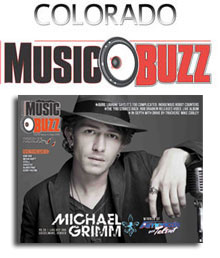

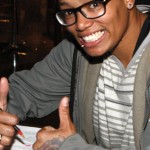
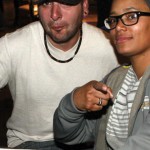
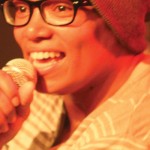
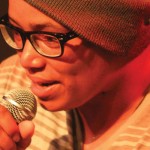
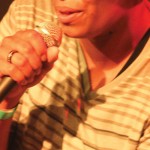
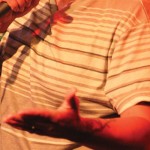
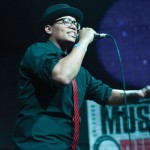
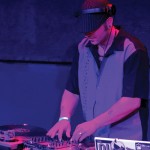
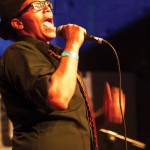

Recent Comments…